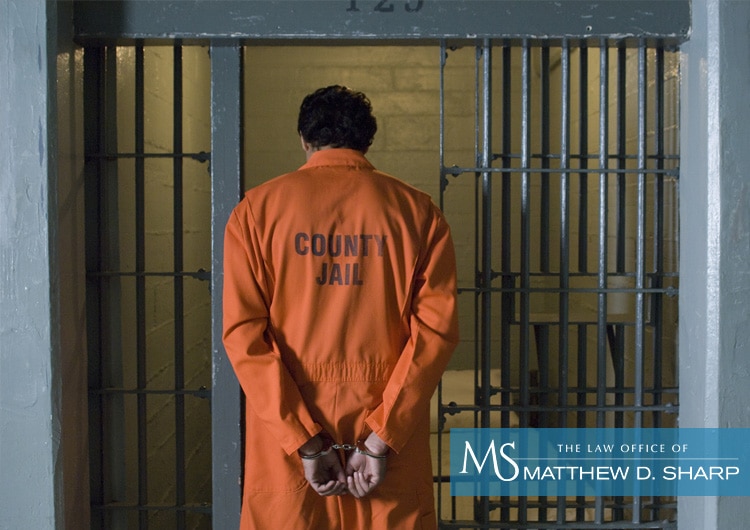Checking Out Why Bail Bonds Are Important in the Lawful Process
Bail bonds serve an essential function within the legal system, assisting in the delicate balance in between specific legal rights and social security. Comprehending the diverse duty of bail bonds welcomes a better assessment of their effect on both accuseds and the more comprehensive justice system.
Understanding Bail Bonds
In the lawful process, bail bonds work as a critical system that enables people billed with criminal activities to protect their release from custody while waiting for trial. A bail bond is basically an economic assurance offered by a third party, typically a bail bondsman, which guarantees that the charged will show up in court at the designated times. When a judge establishes a bond amount, it mirrors the seriousness of the fees and the perceived trip threat of the defendant.
People who can not manage the complete bail quantity might turn to bondsman, who charge a non-refundable cost, usually around 10% of the complete bail. This charge compensates the bondsman for assuming the danger of the offender potentially failing to show up in court. If the offender does not abide with court appearances, the bondsman may utilize different methods to find and nab the person.
Bail bonds play a crucial duty in the criminal justice system by stabilizing the legal rights of the charged with the requirement to make sure public security and court integrity. Understanding the auto mechanics of bail bonds is vital for anyone navigating the complexities of the legal landscape.

The Role of Bail in Justice
Bail serves as a basic pillar within the justice system, stabilizing the presumption of innocence with the requirement to ensure court presence. bail bondsman Vista. By permitting defendants to continue to be cost-free while waiting for test, bail recognizes that individuals are innocent till proven guilty. This crucial concept advertises fairness and justice, as apprehension before trial can aggravate social inequalities and interfere with lives

Additionally, the bail process permits courts to examine the conditions of each case, consisting of the nature of the charges, the accused's history, and community connections. This individualized analysis makes certain that bail choices are not exclusively corrective but are instead reflective of the principles of justice and equity, therefore improving the stability of the legal system.
Advantages for Offenders and Households
The benefits of bail prolong past the court, dramatically impacting accuseds and their households. By securing bail, defendants are paid for the chance to continue to be in their areas while read this waiting for trial, which can considerably relieve the emotional and economic tension connected with imprisonment. This liberty enables people to maintain work, support their family members, and satisfy necessary responsibilities, eventually adding to their total well-being.
For families, the ramifications of protecting bail are profound. It allows them to stay together during a challenging time, fostering a support group that is vital for emotional strength. Family members can take part in the lawful procedure more properly, as they can talk to attorneys, gather proof, and plan for court hearings without the included concern of separation.
Furthermore, having actually a loved one released on bail can mitigate the financial stress that often comes with lawful fights. Households can allot resources towards legal charges and other necessities rather than sustaining expenses connected with imprisonment. Generally, the accessibility of bail bonds acts as a crucial lifeline for defendants and their family members, promoting security and unity throughout a troubled period in their lives.
Influence on Court Effectiveness
By assisting in the launch of accuseds prior to trial, bail bonds substantially improve court performance. When defendants are able to protect bail, they are less likely to remain incarcerated, which in turn reduces congestion in here are the findings jails and apprehension facilities. This alleviation of congestion enables police and court workers to assign sources a lot more effectively, concentrating on active instances as opposed to taking care of a backlog triggered by pretrial detentions.
Furthermore, when defendants are launched on bail, they can much better get ready for their legal process. This prep work typically leads to much more informed conversations between the accused and their legal advise, causing an extra structured judicial process. As defendants are more most likely to participate in court hearings when they are not restricted, the price of missed court dates reduces, adding to a much more orderly court routine.
Additionally, the prompt resolution of instances is facilitated as accuseds are inspired to take part in their tests proactively. This not just accelerates the lawful process however likewise helps keep public confidence in the justice system. all area bail bonds Eventually, using bail bonds serves a twin objective: making sure that defendants can take part in their protection while all at once promoting a more reliable judicial framework.
Alternatives to Bail Bonds
Numerous alternatives to conventional bail bonds exist within the legal framework, each offering distinct devices for pretrial launch. One such option is launch on recognizance (ROR), where defendants promise to show up in court without the requirement for financial bail. This option is commonly offered to individuals considered low-risk, promoting fairness in the justice system.
One more option is the use of supervised launch programs, which involve keeping an eye on defendants through check-ins with a pretrial services policeman. These programs may include problems such as curfews or electronic tracking, guaranteeing compliance and reducing flight risk.
In addition, some jurisdictions carry out diversion programs that focus on rehabilitation rather than punishing measures. Defendants may take part in area solution or counseling as a problem of their launch, addressing underlying problems while minimizing imprisonment.
Finally, bail funds developed by not-for-profit organizations offer economic assistance to low-income defendants, allowing them to safeguard release without the burden of high charges associated with standard bail bonds. These alternatives highlight the relevance of stabilizing public safety with the civil liberties of the accused, ultimately contributing to an extra equitable legal process.

Conclusion
Bail bonds serve as a basic component of the legal process, symbolizing the concept of anticipation of virtue while guaranteeing accuseds maintain their liberty before trial. By incentivizing court attendance and minimizing jail congestion, bail bonds promote a lot more reliable instance prep work. Their function in enhancing court effectiveness highlights their value in maintaining public self-confidence in the justice system. Eventually, bail bonds contribute substantially to a balanced technique in between the civil liberties of the charged and public safety.